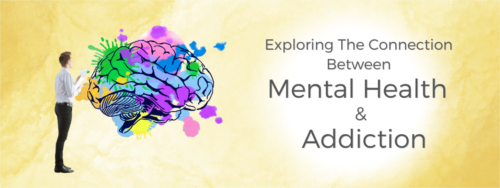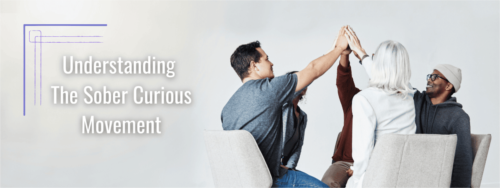
.jpg)
What To Know About Drug Use Disorder And Addiction
No one ever expects to battle a drug use disorder, but this serious disease impacts millions of Americans every year. Drug use disorders change your brain and body and can devastate your life. Mercifully, there is support for anyone struggling with drug use. Expert drug addiction treatment is available in the Boston area and can enable you to take back control of your life. Continue reading to find out more about drug use disorders and addiction and how people and their loved ones can conquer these conditions with professional support.
What Is A Drug Use Disorder?
Numerous people use illicit drugs for recreation or powerful prescription drugs to treat health conditions. But at what point does drug use transform into a life-altering disorder?
Generally, drug use develops into a disorder when a person displays troubling patterns of drug use and can no longer manage their use. Drug use disorders are mental health conditions that span from mild to severe. These conditions interfere with your life and have a detrimental impact on your physical state.
There are different facets of drug use disorders:
- Dependence develops when your system becomes so reliant on a drug that it struggles to function when it’s not present. You will suffer distressing withdrawal symptoms if you stop taking the drug.
- Addiction is a psychological dependency. Addictive drugs change your brain function so that you persistently crave those substances and feel compelled to use them more and more. You are no longer in control of your mind and actions. Addiction is the most extreme part of substance use disorders.
All phases of drug use disorder are hurtful to your relationships, mind, body, and wellbeing. If you are concerned that you or a person you love has a drug use disorder, find skilled care for recovery. All individuals have a right to help.
What Drugs Are Habit-forming?
Habit-forming drugs possess powerful chemicals that modify your brain. Many are threatening enough to be prohibited by law. Others are authorized prescriptions but can become unsafe when used improperly or consumed too frequently. Below are some of the commonly found addictive drugs in the United States:
- Narcotics deaden the senses, which enables them to be potent pain relievers. However, people also consume them to decrease other unpleasant feelings and can become addicted quickly. Narcotics can be classified as opiates or opioids. Opiates are nature-based drugs. Opioids are lab-created. Heroin is a widespread illegal narcotic. Legal drugs like Vicodin, Percocet, OxyContin, morphine, and fentanyl have therapeutic uses but are habit-forming and often abused.
- Benzodiazepines are mood-changing drugs frequently recommended for mental health disorders. Even so, they can become addictive when not managed properly. Their sedative qualities make you feel relaxed. Xanax and Klonopin are familiar benzos.
- Stimulants encompass prescription drugs like Ritalin and Adderall, as well as illegal drugs like meth and cocaine. They activate your central nervous system, leaving you feeling alert, elated, and animated. Overdosing of stimulants can be deadly.
Every one of these sorts of drugs can result in a drug use disorder. They all possess the potential to disrupt your life and cause life-endangering medical conditions. Get help for yourself or a person you care about at the first signal of substance dependency.
How Does Drug Addiction Start?
There are many reasons why individuals turn to dependency-causing drugs. Some do so for pleasure because they relish in the effects those chemicals generate. Some people get addicted to medications they're using for medical purposes. Additional people begin using drugs to self-treat undiagnosed mental illnesses and experience brief respite.
Whatever the motivation for first trying these substances, the path to addiction is generally the same. Your body grows reliant on the drug, and you feel ill when you don't use it. You use more just to function. You might gradually need greater doses for the drug to have an impact. You enjoy how its influence feels. You feel miserable without it and persist in using it. Eventually, those chemicals take control of the pleasure circuits of your brain, and you cannot feel normal unless that drug is present.
Once you're addicted, getting a steady supply of the drug is the only thing that matters. Numerous people lose jobs, suffer health problems, damage relationships, and take significant risks due to drug addiction. Your addiction controls you and every part of your life, and you are unable to quit without specialized support.
What Are Some Indications Of Drug Addiction?
You might think that a drug use disorder would be clear. However, these disorders can appear differently among individuals, and loved ones will frequently try to conceal their drug use from family members. If you aren't sure if you or a relative have a drug use disorder, consider the following warning signals:
- Having an uncontrollable urge to take the drug
- Failed attempts to cut back on or cease using the drug
- Allocating lots of time and energy obtaining the drug, ingesting it, or recovering from its effects
- Taking a prescription for longer durations or in greater amounts than prescribed
- Struggling to fulfill obligations due to drug use
- Abandoning once-liked pursuits to consume drugs
- Persistent use of the drug even when it harms relationships
- Continuing to use the drug even when it adversely impacts your physical and psychological health
- Needing more of the substance to experience its effects
- Enduring withdrawal when attempting to halt use
- Taking risks to get or use the drug
Drug use disorders may look different among people. If you or someone close to you are exhibiting any signs of drug addiction near Boston, speak with a doctor or addiction treatment specialist.
Where To Obtain Drug Addiction Treatment In Boston
Drug use disorder treatment is a multi-faceted process. Many people will slip up and need to repeat steps many times. You won’t be “cured” of drug use disorder, but numerous individuals acheive recovery and use what they discuss during treatment to build a healthy, substance-free life. The key is locating skilled, reseach-supported treatment that matches your needs.
Each person’s recovery journey will be unique. But, treatment usually consists of the these steps at licensed treatment facilities:
- Drug detox is the process of letting your body clear itself of substances. Your system will do this automatically if you abstain from taking more drugs. But, if you have a dependence, your system will go into withdrawal without using. To properly complete detox, you should enter an inpatient detox treatment center that provides round-the-clock medical support and takes steps to keep you comfortable.
- Drug rehab programs also provide inpatient care. During rehab, you’ll keep living at a treatment facility and get access to clinical support for any lingering withdrawal symptoms. You go to different kinds of therapy each day with the aim of grasping your addiction, developing new healthy habits, and managing any existing mental disorders. You should remain in rehab until you are physically and mentally stable enough to exit that substance-free environment.
- When you finish rehab, you should continue to receive specialized addiction care. Outpatient addiction and mental health services will help you live your life without drugs. These programs provide ongoing counseling and medication management. Initially, you could participate in outpatient care each day and go home in the evenings. Gradually, you’ll require less support and could only participate in therapy weekly or less.
Every individual deserves skilled, caring addiction treatment. Regardless of how advanced your addiction is, there is hope. Getting professional therapy at a licensed treatment facility is critical for your future. There’s no need to battle addiction by yourself. You will find numerous possibilities for drug addiction treatment near Boston.
How Can Families Help A Loved One Struggling With Drug Addiction Near Boston?
Those with a drug use disorder need all the support they can find. Family members and friends can play essential roles in addiction recovery. If you care for an individual with a drug use disorder, here are several ways you are able to support them:
- Help them get into a treatment program
- Help them make payments for treatment
- Go to family counseling with them
- Play an active role in aftercare planning
- Provide a safe, drug-free environment to live
- Withhold judgment
- Set limits around their substance use
- Offer transportation to outpatient treatment appointments
Request Help For Drug Use Disorders Near Boston Today
No one should try to handle drug use disorders alone. If you or a person you care about are battling with drug addiction, there is hope for recovery. Turn to Evolve Recovery Center Millbury at 508-475-5676 or fill out our contact form below. Someone will respond right away to discuss treatment. All calls are free and private. You can reach us 24-hours a day, all year round. Get help now. We are here for you.


